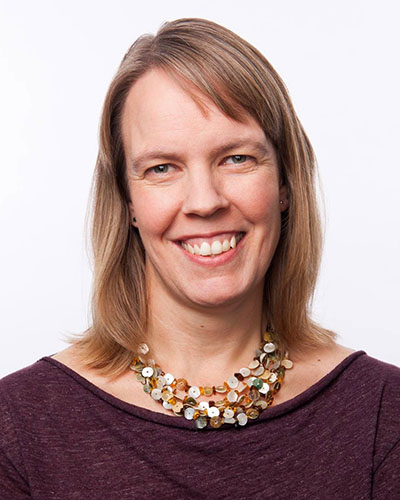Sylvia Fallon has worked at the crossroads of science and policy for nearly two decades at the Natural Resources Defense Council in Washington, D.C. As an ecologist and evolutionary biologist, she has secured protections for endangered wildlife species such as gray wolves, white bark pine and monarch butterflies. Sylvia has ensured that science is integrated into the development of NRDC’s policy positions and decision-making.
Prior to joining NRDC, Sylvia was a science and technology policy fellow with the American Association for the Advancement of Science. She holds bachelor’s and master’s degrees from the University of California, San Diego and a PhD from the University of Missouri–St. Louis. While at UMSL, she appreciated the faculty and was pleasantly surprised by the international flavor she found.

“Bob Ricklefs was a fantastic PhD advisor for me, and the UMSL student body was such a mix of international cultures from China, Mexico, Iceland and Brazil, making our social get-togethers so interesting,” she said. “I had been hesitant to move to the Midwest, but St. Louis turned out to be such cool place to live.”
After earning her PhD from UMSL, Sylvia took a postdoctoral fellowship at the Smithsonian in Washington, D.C. opening up more avenues involving policy.
“Following that, I took a position with my current organization, NRDC, using my training in evolutionary biology and ecology to explore how federal agencies were using genetics in decision-making around endangered species management,” she said. “I also was able to use my academic connections to ensure researchers were consulted on agency actions that would benefit from their expertise.”
Besides advocating for individual species protections and improved wildlife management policies at the state, federal and international level, Sylvia mentors graduate students seeking advice on careers in nonprofit environmental advocacy.
“Once you are in a graduate program, it can be difficult to find career paths outside of academia,” she said. “But science can have much broader implications for the world, and we need scientists to be involved in policymaking and advocating for solutions that are going to help improve environmental outcomes.”
Sylvia says it can be easy to get caught up in a very obscure research topic during graduate work, but it is also possible to apply scientific training more broadly to solve complex and real-world problems.
“I would tell students to try to think beyond their research project to how they can help contribute to addressing today’s environmental crises,” she said. “We need you!”